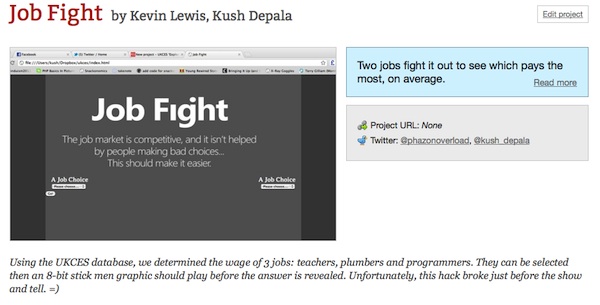Open and Linked Data and Mediation
There has been an explosion of interest in Open Data and the potential for linking data to produce new social apps. Yet despite all this attentions, and the growing access to data in some countries such as the UK, the development of new apps has been less than impressive.
Rather than full apps, probably the main use has been the development of interactive visualizations allowing users to explore different data sets and quick visualisations of different data sets. The Guardian newspaper data blog has led the way in the UK and in particular has shown the value of open journalism such as in this discussion on how they got the colours of the maps right.
But the development of more advanced apps has been slower. Probably the biggest take off has been around transport allowing real time timetable tracking etc. But even here the problem of the social purpose and use of data apps is an issue. take this compelling app from the German newspaper Suddeutsche . Its hows graphic representations of train journeys in Germany, providing information on each train’s itinerary and the details of any delay. There is also an interactive timeline, allowing you to watch previous days’ travel play out. Its fun. But I can’t really see that it is much use! Or take this app – available in various forms – using crowd sourced data to find the nearest post box in the UK. Do we really need it? Why not just ask somebody / anybody?
In education there are a number of apps for finding schools etc. But there is little use of open and linked data for learning.
We have been working with a number of organisations to produce open and linked data apps for use in careers guidance. There are now three iterations of what we variously call a TEBO (Technologically Enhanced Boundary Object) or Careers dashboard.
The first was a quick demonstrator which we built to see how it might work. The second works through an API to the Careers Wales beta web site. And the third – more technically advanced – iteration is a database and API developed for UKCES which is not publicly available at present.
One of issues being raised in this work is mediation. In general government / agencies seem to regard data as just standing on its own. Within the TEBO concept we always stressed the need for social mediation and had ideas for a number of ways in which this might happen using social software e.g Question and Answer applications.
In fact mediation takes place at a series of levels – including the selection of data originally collected, and the way data is selected for use and display within an application. Different people will need different apps for interrogating the same data. For instance our Careers Dashboard may have potential interest and use for:
- Young people thinking about career choices;
- Young people applying to further or higher education, seeking an apprenticeship or employment;
- Adults who are newly unemployed;
- Long term unemployed adults;
- Adults considering re-entering education and training (e.g. women returners);
- Adults thinking about a change in career direction (e.g. mid-career changers);
- Parents and carers supporting young people wishing to enter further education, vocational training or employment
- Career professionals – careers teachers, careers advisers and subject teachers; and
- Various others (e.g. educational planners and policymakers, professionals preparing funding applications, researchers).
However, mediation seems to be commonly understood as intervention and then posed as a dichotomy between non intervention or intervention or to put it another way – let end users access to data or only let professionals access to data. This seems to me a misunderstanding of both the potentials and limitations of the data but of the potentially rich ways in which mediation happens and the ways in which technologically can be used in such processes.
It would be interesting to look at mediation within physical communities and through extended web and social media based communities. It would also be interesting to link mediation to the potential quality of careers interventions (i.e. after mediation takes place.)
More to follow…..


